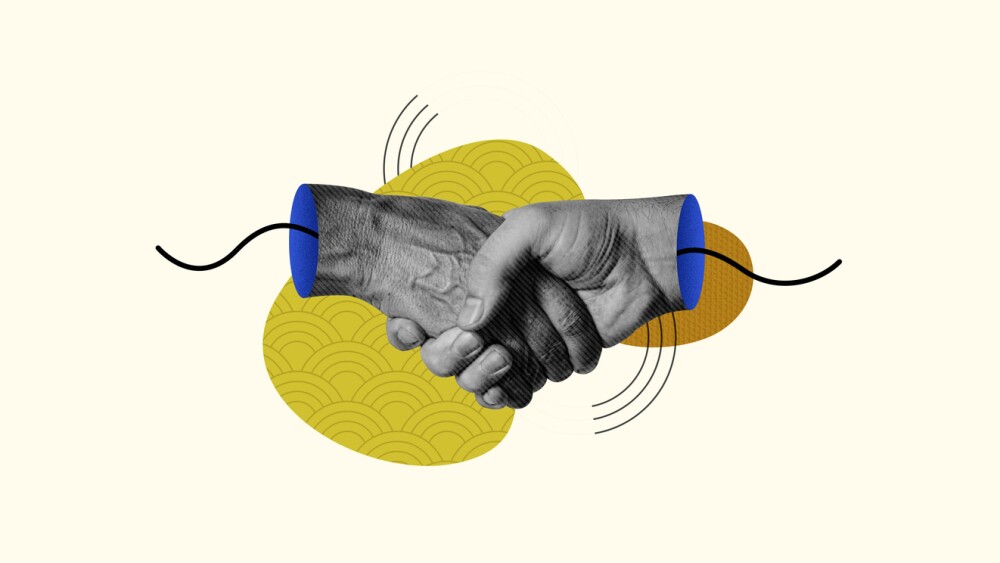With the International Conference on Alzheimer’s and Parkinson’s Diseases still ongoing, there has been increased news about Alzheimer’s. Here’s a look at just a few of the latest stories.
With the International Conference on Alzheimer’s and Parkinson’s Diseases (AD/PD 2022) still ongoing in Spain and online, there has been increased attention and research news about Alzheimer’s. Here’s a look at just a few of the latest stories.
Lithium Might Decrease Dementia Risk
Research out of the University of Cambridge suggests that lithium might decrease the risk of developing dementia. Published in the journal PLoS Medicine, the research team analyzed data from 29,618 patients from the Cambridgeshire and Peterborough NHS Foundation Trust in the UK between 2005 and 2019. The mean age was about 74 years and 40% were male.
In the group that received lithium (58), 9.7% were diagnosed with dementia. For the group that did not receive lithium (29,070), 11.2% were diagnosed with dementia. The number of patients that received lithium is a limiting factor for the study. Another limitation was the number of patients diagnosed with bipolar disorder.
“We expected to find that patients with bipolar disorder were more likely to develop dementia since that is the most common reason to be prescribed lithium, but our analysis suggested the opposite,” said Dr. Shanquan Chen, the paper’s first author, from Cambridge’s Department of Psychiatry. “It’s far too early to say for sure, but it’s possible that lithium might reduce the risk of dementia in people with bipolar disorder.”
Frequent Napping in Older Adults Associated with Alzheimer’s
A study from the University of California, San Francisco, found that frequent or regular napping during the day in older adults may be a sign of early dementia. The research found that elderly adults who napped at least once per day or more than an hour each day were 40% more likely to develop Alzheimer’s than people who didn’t nap daily or for less than an hour a day. The study was published in Alzheimer’s and Dementia: The Journal of the Alzheimer’s Association.
“We found the association between excessive daytime napping and dementia remained after adjusting for nighttime quantity and quality of sleep,” said co-senior author Dr. Yue Leng, an assistant professor of psychiatry at UCSF.
The study analyzed data that had been collected over 14 years via the Rush Memory and Aging Project, which tracked more than 1,400 people between the ages of 74 and 88.
“I think the public isn’t aware that Alzheimer’s is a brain disease that oftentimes causes changes in mood and sleep behavior,” said Dr. Richard Isaacson, director of the Alzheimer’s Prevention Clinic in the Center for Brain Health at Florida Atlantic University’s Schmidt College of Medicine, who was not involved with the study. “Excessive napping may be one of the many clues that a person could be on the road to cognitive decline and trigger an in-person evaluation with a treating physician.
Leng did add that they didn’t have enough evidence to draw conclusions about a causal relationship between napping and Alzheimer’s, whether napping caused the cognitive decline or was a signal of accelerated aging or cognitive decline.
What is Mild Cognitive Impairment?
Mild cognitive decline is a condition that falls somewhere between normal brain aging and full-blown dementia. It appears to affect about one in seven people 60 years and older, yet most people are not familiar with the condition. According to a survey, 82% of Americans didn’t know about it.
“Mild cognitive impairment is often confused with normal aging because it is very subtle,” said Maria Carrillo, chief science officer of the Alzheimer’s Association, which released a special report this week. Symptoms include “forgetting people’s names, forgetting perhaps that you’ve said something already, forgetting a story, forgetting words.”
The condition is defined as the memory and cognitive changes that are noticeable to the affected individual and people around them but aren’t serious enough to cause problems with everyday activities. This makes it difficult to diagnose. An actual diagnosis requires at least one visit to a physician. In the survey, 60% said they would wait or not see a doctor at all if they experienced symptoms. Reasons included fear of an incorrect diagnosis (28%), learning of a more serious problem (27%), fear of unnecessary treatment (26%) and thinking the symptoms will go away with time (23%).
However, mild cognitive impairment symptoms can be caused by other things than Alzheimer’s disease, including being tired, depression, not sleeping well, Vitamin B-12 deficiency or side effects from some medications. Still, about one-third of mild cognitive impairment patients will be diagnosed with Alzheimer’s within five years.
Blood Test Might Accurately Detect Alzheimer’s Disease
Alzheimer’s disease is associated with the accumulation of abnormal proteins in the brain, notably beta-amyloid and tau. What complicates things is that there are multiple forms of beta-amyloid, and it’s not clear which forms are the most problematic. Dr. Randall Bateman, the Charles F. and Joanne Knight distinguished professor of Neurology at Washington University School of Medicine in St. Louis, focused on two forms: beta-amyloid 40 and beta-amyloid 42, which seem to contribute most to the creation of the amyloid plaques associated with the disease. What they found was that by tracking how beta-amyloid is removed from the central nervous system, the ratio of amyloid-beta 42 and amyloid-beta 40 could determine if someone was forming amyloid plaques on their brain.
“From this discovery, Bateman said, “we sought to test and validate [our findings] in several large national Alzheimer’s disease studies, and the current publication in Neurology is that work from studies in Europe, the U.S., and Australia.”
Across all samples, the blood test effectively predicted the presence of beta-amyloid. And when they correlated it with a gene variant known as a genetic risk factor for Alzheimer’s, APOE4, the accuracy for predicting Alzheimer’s went even higher.





